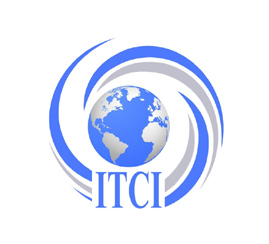About RMP®
RISK MANAGEMENT PROFESSIONAL (RMP®)
Risk Management Program
Risk management is an important skill that can be applied to a wide variety of projects. In an era of downsizing, consolidation, shrinking budgets, increasing technological sophistication, and shorter development times, risk management can provide valuable insights to help key project personnel plan for risks, alert them of potential risk issues, analyze these issues, and develop, implement, and monitor plans to address the issues long before the issues surface and adversely affect project cost, performance, and schedule.
If any employers are looking to sharpen their employees’ project management skills and showcase their specialized expertise in risk management, this course is meant for them.
What we do
RMstudy is a leading Education Provider imparting quality training to prepare professionals to manage risks associated with various projects.
This course is aligned with the concepts of Risk Management as defined by Project Management Institute (PMI®) and is a great way to prepare for PMI Risk Management Professional (PMI-RMP®) exam. Upon successful completion of the course, you get 20 PMI Approved PDUs (Activity # is RMSTUD).
RMstudy classroom training has been developed and evaluated by several PMPs and experts in project risk management.
Why Us
•Learn from the Leaders
•Low cost / High value
•High-quality courseware
•Experienced faculty
•Successful training program
•PMI approved PDUs
Comprehensive Course Structure
Our Risk Management course is comprehensive and covers all the concepts required to be a Risk Management specialist.
The course offers comprehensive study guides for all the chapters with examples that explain and illustrate the concepts for the benefit of the student. The concepts are explained in simple language using time-tested and proven training methodology, making it easy to understand even the complex topics.
The Risk Management course has been developed and evaluated by several PMPs and experts in the field of project risk management. This course is aligned with the concepts of Risk Management as defined by Project Management Institute (PMI®) and is a great way to prepare for PMI Risk Management Professional (PMI-RMP®) exam. Upon successful completion of the course, students will get 20 PMI approved PDUs (Activity # is RMSTUD).
The Risk Management classroom course is divided into the following 8 chapters.
1.Principles and Concepts
2.Introduction to Project Risk Management Processes
3.Plan Risk Management
4.Identify Risks
5.Perform Qualitative Risk Analysis
6.Perform Quantitative Risk Analysis
7.Plan Risk Responses
8.Monitor and Control Risks
Classroom Daily Schedule
The Risk Management course has been developed and evaluated by several PMPs and experts in the field of project risk management. The Risk Management classroom course is divided into the following 8 chapters.
Day 1
Principles and Concepts
•Definition of Project Risk
•Individual Risks and Overall Project Risk
•Stakeholder Risk Attitudes
•Iterative Process
•Communication
•Responsibility for Project Risk Management
•Project Manager’s Role for Project Risk Management
•Some Important Terms and Concepts
Introduction to Project Risk Management Processes
•Project Risk Management and Project Management
•Project Risk Management Processes
•Some Important Terms and Concepts
Plan Risk Management
•Purpose and Objectives of the Plan Risk Management Process
•Critical Success Factors for the Plan Risk Management Process
•Tools and Techniques for the Plan Risk Management Process
•Documenting the Results of the Plan Risk Management Process
•Techniques and Templates for Risk Management Planning
•Some Important Terms and Concepts
Identify Risks
•Purpose and Objectives of the Identify Risks Process
•Critical Success Factors for the Identify Risks Process
•Tools and Techniques for the Identify Risks Process
•Documenting the Results of the Identify Risks Process
•Techniques, Examples and Templates for Identify Risks
•Some Important Terms and Concepts
Day 2
Perform Qualitative Risk Analysis
•Purpose and Objective of the Perform Qualitative Risk Analysis
•Critical Success Factors for Perform Qualitative Risk Analysis Process
•Tools and Techniques for the Perform Qualitative Risk Analysis Process
•Documentation of Results
•Techniques
•Some Important Terms and Concepts
Perform Quantitative Risk Analysis
•Purpose and Objectives of the Perform Quantitative Risk Analysis
•Critical Success Factors for the Perform Quantitative Risk Analysis Process
•Tools and Techniques for the Perform Quantitative Risk Analysis Process
•Documenting the Results of Quantitative Risk Analysis Process
•Techniques
•Some Important Terms and Concepts
Plan Risk Responses
•Purpose and Objectives of the Plan Risk Responses Process
•Critical Success Factors for the Plan Risk Responses Process
•Tools and Techniques for the Plan Risk Responses Process
•Documenting the Results of the Plan Risk Response Process
•Techniques, Examples, and Templates for the Plan Risk Responses process
•Some Important Terms and Concepts
Monitor and Control Risks
•Purpose and Objective of the Monitor and Control Risks process
•Critical Success Factors for the Monitor and Control Risks Process
•Tools and Techniques for the Monitor and Control Risks Process
•Documenting the Results of the Monitor and Control Risks Process
•Techniques, Examples, and Templates for the Monitor and Control Risks process
•Some Important Terms and Concepts
-
SIX SIGMA - White, Yellow and Green Belt Certification Courses COMING SOON! ..$0.00

